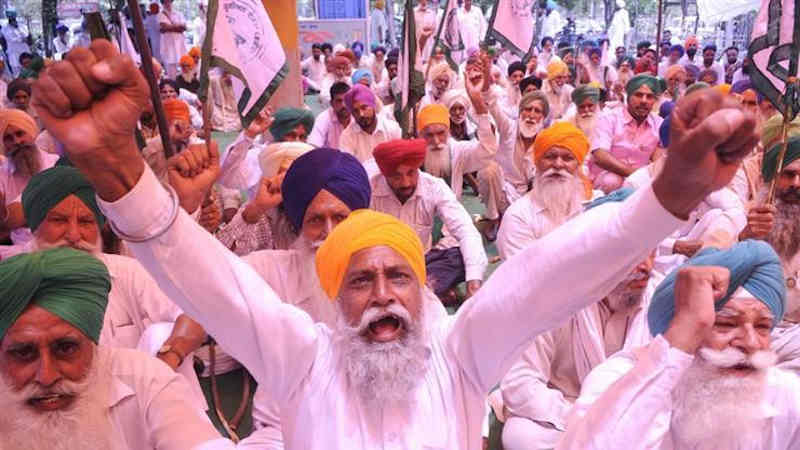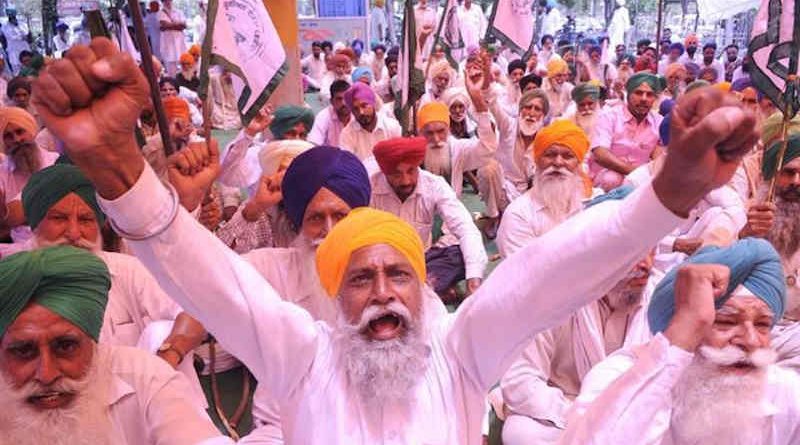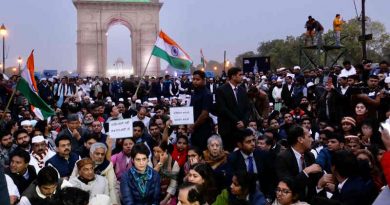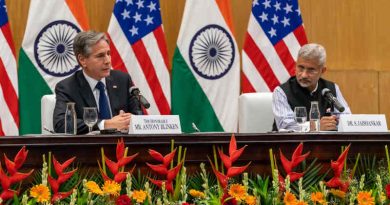Farm Protests Increase Covid Risk in Delhi

Since the Delhi Government has already failed to contain the contagion in the city, the crowds of rural protesters have increased the Covid risk for the protesters as well as Delhi residents.
By Rakesh Raman
While India’s capital New Delhi is already among the most affected cities, the ongoing farmers’ protests have increased the Covid-19 risk in and around the national capital.
Hundreds of thousands of Indian farmers have been protesting on the outskirts of Delhi since November 27 against the new farm laws introduced by the government of Prime Minister (PM) Narendra Modi. While farmers expect the Modi government to repeal the contentious laws, the government has refused to accept farmers’ demands.
According to estimates, nearly 300,000 protesters – mainly from the Punjab state – have been camping on all sides of Delhi. As the protests are expected to continue for a long period of time, the farmers (some with their families) have built makeshift homes on the roadsides of the city.
Rural Resistance: Protests by Farmers in India
This article is part of our exclusive editorial section “Rural Resistance: Protests by Farmers in India”. You can click the following link to visit this section.
[ Rural Resistance: Protests by Farmers in India ]
The protesting farmers are not observing safe-distancing guidelines and do not wear face-masks. They maintain that Modi government’s anti-people laws pose more risk than coronavirus.
Earlier, the Modi government – through Delhi Police – had banned farmers’ entry into Delhi under the pretext that they will spread coronavirus in the city. Farmers, however, argue that coronavirus is just an excuse of the Modi government to derail street protests against the government’s decisions.
Earlier, with a coronavirus excuse, the Modi government had used Delhi Police to forcibly remove the Shaheen Bagh protesters who were not willing to end their agitation.
Thousands of protesters – mainly women – had been protesting in Shaheen Bagh against the Citizenship Amendment Act (CAA), National Register of Citizens (NRC), and National Population Register (NPR) announced by the Modi government.
Protesters said that the discriminatory citizenship laws announced by the Modi government are more dangerous for people than coronavirus. But the government used police force to drive away the protesters from the protest site.
After removing the protesters, the Modi government used draconian laws including sedition and Unlawful Activities (Prevention) Act or UAPA against some of the protesters who were leading the protests at the Shaheen Bagh site.
As the Modi government used force to end the Shaheen Bagh protest, it is expected that the government will use the same tyrannical model against the farmers’ protests and farm leaders.
Meanwhile, according to reports, two of the Indian Police Service (IPS) officers who led the force at farmers’ protest site at Delhi border have tested positive for coronavirus. Government has deployed a large number of police and security personnel at the protest sites around Delhi.
Since the Delhi Government has already failed to contain the contagion in the city, the crowds of rural protesters have increased the Covid risk for the protesters as well as Delhi residents.
By Rakesh Raman, who is a national award-winning journalist and social activist. He is the founder of a humanitarian organization RMN Foundation which is working in diverse areas to help the disadvantaged and distressed people in the society.





